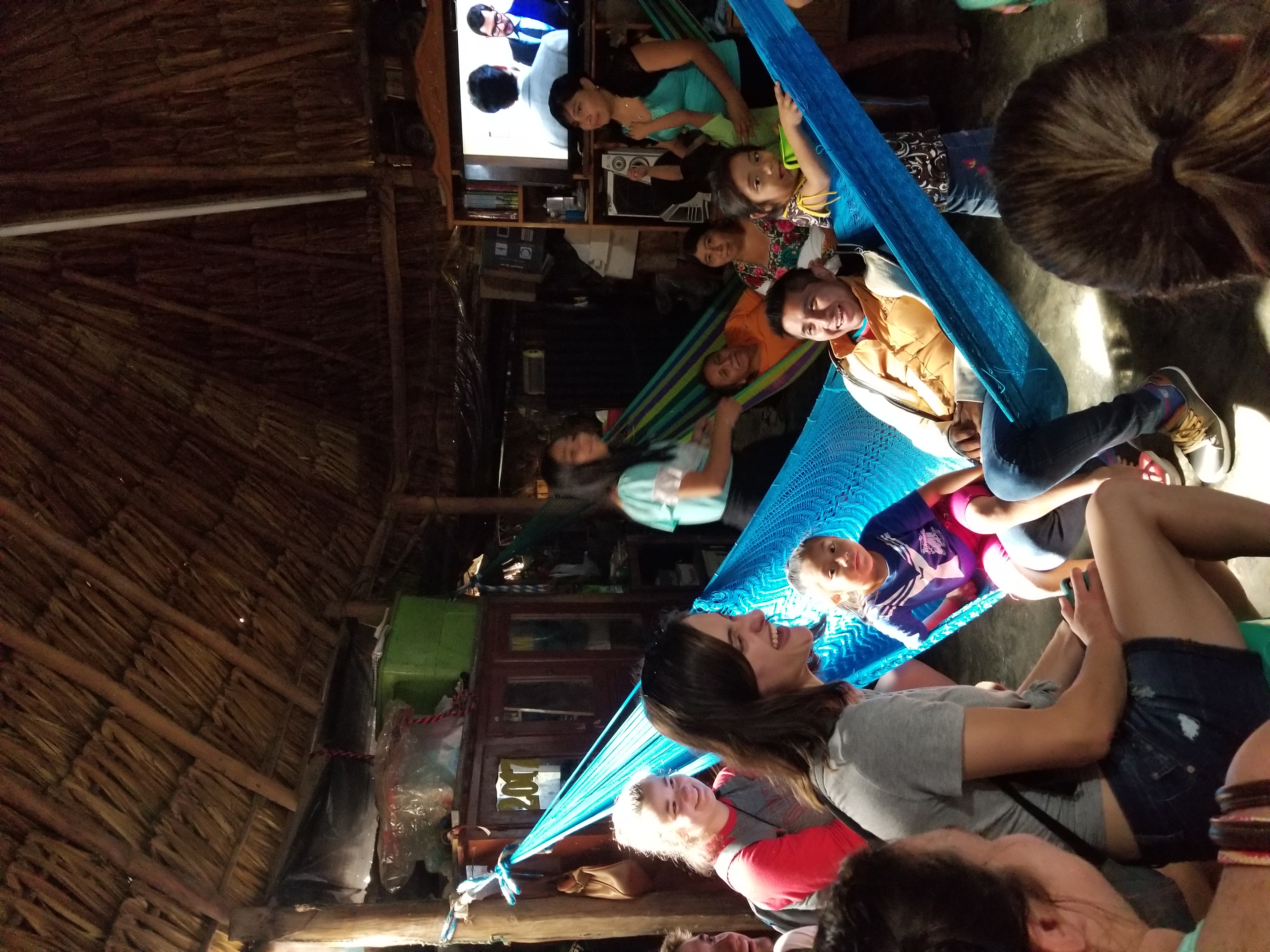Blogs

UD Signs Collaborative Commitment
By Center for International Programs
The University of Dayton is the first university to sign onto the ethical and fair trade learning commitments sponsored by the Community-Based Global Learning Collaborative.
“These commitments reflect a human rights-based approach to global and local community engagement that centers the perspectives, leadership, representation and meaningful engagement of impacted populations and those who are most vulnerable,” said Shelley Inglis, executive director of UD’s Human Rights Center.
UD President Eric Spina formally signed the agreement on May 18, 2021.
Sarah Brightfield, a senior civil engineering major with a minor in sustainability, noted, “The commitment to Community-Based Global Learning is an opportunity to build a more equitable and inclusive community worldwide.” She knows firsthand the challenge after participating in a semester at Griffith University in Australia and being part of the sustainable travel group in the SEE 401 Capstone course.
While several individuals and campus centers across the nation and world have signed onto the Collaborative Commitments, none has done so at the university level with support from the president. “It is often challenging for entire higher education institutions to organize around the commitments,” said Eric Hartman, executive director of the Center for Peace and Global Citizenship at Haverford College and co-founder of the collaborative. “UD, with its existing efforts to clarify ethical purchasing, identify connections between the UN Sustainable Development Goals and institutional practices, and its commitments to sustainability, human rights, and community engagement— all drawing on the strengths of its Catholic and Marianist traditions — now becomes a leader in these commitments.”
These ethical practices call on UD to develop partnerships with community organizations, universities and service providers that reflect:
- Common purposes
- Leadership from those who are most affected
- Protections for members of vulnerable populations
- Participation opportunities among those who are most affected
- Consciousness and evaluation efforts regarding theories of change
- Ethical representation
- Intentional environmental and economic impacts and transparency
- Critical visioning of how we move toward more just, inclusive, sustainable communities and global community
According to Inglis, “(The commitments) demand that we work ourselves toward a more just and sustainable future where our systems and institutions no longer create structural vulnerabilities and inequities.” Zach Dewit, who graduated in May with a degree in international business management and minors in French and sustainability, focused on sustainable travel in the SEE 401 Capstone course. He sees the practical application of these commitments to UD: “As a university that is committed to sustainability, ensuring that the environmental impacts of study abroad are considered should always be a step in the decision-making process when creating new study abroad opportunities. I am glad to see this become an integral part of the University of Dayton’s study abroad programs, and I am excited to see how it benefits students and faculty in the future.”
UD’s involvement with the Collaborative spans several years and extends across campus. Since 2019, Kelly Trail, director of education abroad, has been a member of the Collaborative Steering Committee and serves on the Knowledge Mobilization and Advocacy subcommittee. In May 2019, campus representatives from the School of Engineering (The ETHOS Center), the Fitz Center, the Human Rights Center, the Center for Social Concern, and the Center for International Programs organized the Midwest Institute: Community Partnerships and Global Learning for Human Rights in partnership with the Collaborative. The Institute focused on ethical engagement using the UN’s Sustainable Development Goals and Human Rights as a framework. This two-and-a-half day workshop included UD colleagues, participants from community organizations, such as Catholic Social Services and Welcome Dayton, and other universities, like Indiana University, Michigan State University, The Ohio State University and Kent State University.
In 2019, engineering faculty and staff authored a chapter, “Forming Engineers for the Common Good” in Diverse Pedagogical Practices in Experiential Learning, which details how The ETHOS Center integrates the Fair Trade Learning Framework into their community partnership and student immersion work. The Fair Trade Learning Framework preceded and guides the foundation of the Collaborative’s commitment.
Nathan Mansour, an electrical engineering major who participated in an ETHOS immersion in Dayton, commented, “My hope is that by aligning ourselves with these commitments, UD will begin to translate its fervor for the common good into concrete action and radical generosity. I hope that UD will develop and promote programs that integrate UD students into the greater Dayton area, center the voices of the local community, and prioritize humility.”
The introduction to the commitments states, “we recognize that several of these commitments are challenging. But we see the importance of them and commit to working with other network members to achieve them in our context and beyond.” Through efforts led by the Center for International Programs, in partnership with offices and centers across campus, UD will develop a plan for holding itself accountable to these commitments. This will require critical self-reflection into current and new practices and projects. Ultimately, this work will advance UD’s commitment to the common good as we strive to educate students to learn, lead and serve in the world.
